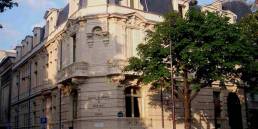David Lively
Two worlds
French-American pianist David Lively has a passionate attachment to the artistic legacies of France and the United States that makes him a performer of choice for the music of both countries.
Early career
In 1969, at the age of 16, he left his native United States for France to study at the École normale de musique with Jules Gentil (formerly Alfred Cortot’s assistant). He went on to study with Wilhelm Kempff, Eugene Istomin, Nadia Boulanger, Erich Leinsdorf and, above all, Claudio Arrau. With his dazzling technique and musical intensity, he quickly won a number of international prizes, including the Concours International Marguerite Long, the Queen Elisabeth Competition, the Geneva International Music Competition, the International Tchaikovsky Competition, where he was also awarded the Special Prize for contemporary music, and the Dino Ciani Prize of La Scala of Milan, winning a growing public following on each occasion.
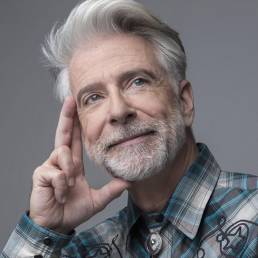
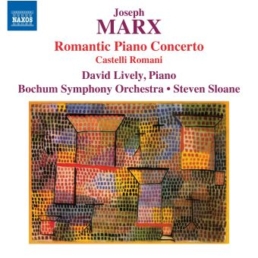
Vast repertoire
Soon he had embarked on a multi-faceted career marked by a diversity that continues to this day. He is intimately familiar with the great repertoire with orchestra, mastering over eighty concertos and specializing in masterpieces so technically daunting that they are hardly ever performed. These include the Busoni and Furtwängler concertos, and Joseph Marx’s extremely challenging Castelli Romani – his recording of this work with the Bochum Symphony Orchestra conducted by Steven Sloane, was recently re-released under the Naxos label. In this repertoire, he has had the privilege of working with conductors such as Erich Leinsdorf, Ferdinand Leitner, Kurt Sanderling, Pierre Dervaux, Hans Vonk, Stanisław Skrowaczewski, Jerzy Semkow, Lovro von Matačić, Walter Susskind, Michael Gielen, Leonard Slatkin, Sir Simon Rattle, Sir Colin Davis, Rafael Kubelik, Pascal Rophé, Dennis Russel Davies, Ronald Zollman, Michael Tilson Thomas, Kent Nagano, Yutaka Sado, Hubert Soudant, Jean-Claude Casadesus, Michel Plasson and more.
I Got Rhythm
Mr. Lively identifies particularly with twentieth-century American music, notably the works of Aaron Copland and Elliott Carter, who was a close friend. His recent recording I Got Rhythm—a CD of American composers with selections from Gottschalk, Gershwin, Joplin, Barber, Ives, Bolcom, Albright and Carter—has been a critical and popular success. Le Monde critic Pierre Gervasoni calls Mr. Lively “an inspired guide to American music,” while Thierry Hilleriteau of Le Figaro praises him as “an exceptionally gifted keyboard artist […], among the finest interpreters of the music of Elliott Carter, Aaron Copland and Charles Ives.”
Ardent champion of contemporary music
His innate virtuosity makes him a champion of new music. Examples include the European premieres of Takemitsu’s Riverrun (with conductor Kent Nagano), Saariaho’s trio Cendres, Travlos’s Double Concerto (with the Moscow Radio Orchestra and Vladimir Fedosseyev), and Sébastien Gaxie’s Continuous Snapshots, dedicated to Mr. Lively and first performed at IRCAM’s ManiFeste festival. He played and recorded Benoît Mernier’s piano concerto with the Orchestre national de Montpellier-Languedoc-Roussillon, conducted by Ernest Martinez Izquierdo. He has a close relationship with Philippe Boesmans, having frequently performed the composer’s chamber music and piano concerto, and has recorded his complete works for piano solo. And thanks to a similar kinship with William Blank, he premiered Blank’s Cris concerto and more recently his concerto Reflecting Black. Written for and dedicated to Mr. Lively, Reflecting Black was commissioned by the Orchestre de la Suisse romande and recorded on the Aeon label with conductor Pascal Rophé. He recently premiered Eric Tanguy’s Quintet for Piano and Strings at the Salle Cortot.
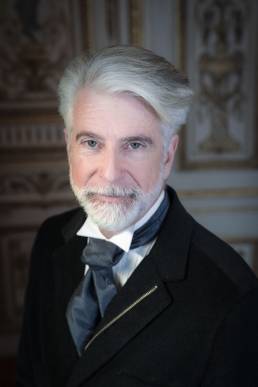
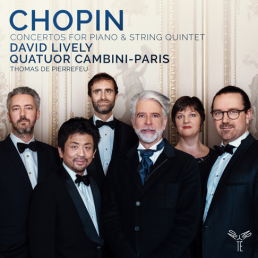
French composers
Mr. Lively has always been drawn to French music, in particular that of the impressionist composers. Studying their works led to his move to France while still in his teens. At 18, his interpretation of Ravel’s Piano Concerto for the Left Hand in the final round of the Queen Elisabeth Competition led King Baudouin to comment “You nearly set off a revolution!” Very early on, he recorded the complete Nocturnes by Gabriel Fauré in memory of his teacher Jules Gentil, who had been a close friend of Fauré. Mr. Lively also transcribed Debussy’s Martyre de Saint Sébastien for two actors, synthesizer and a small ensemble, premiered at the Saint-Lizier Festival in Ariège, where he was artistic director for over 35 years. He has showcased the works of composer Benjamin Godard under the sponsorship of the Bru Zane Foundation in Venice and Moscow, as well as at the Piano aux Jacobins festival in Toulouse.
Chamber music
David Lively is also deeply attached to chamber music, playing many concerts with the Melos, Borodin, Psophos, Terpsycordes and Cambini-Paris quartets, the Ouranos Ensemble and Martha Argerich, Gil Shaham, Eugene Istomin, Alexander Ghindin, Cyprien Katsaris, Sergei Nakariakov, Tatiana Samouil, Elsa Grether, Anssi Karttunen, Dame Felicity Lott, Augustin Dumay, and Gary Hoffmann…
An insatiable curiosity has led him to explore repertoires as far back as the Renaissance, and his work with period instruments has included recitals of music by Scarlatti, Haendel, Bach, Mozart and the young Beethoven on his personal 1771 Zumpe square piano. In 2019 he recorded both Chopin concertos for the Aparté label, playing on an 1836 Erard piano with the Cambini-Paris Quartet.
Training tomorrow's talent, engaging with the world
As artistic director of the Saint-Lizier Festival in Ariège in southwestern France, Mr. Lively made the event a forum for young talent and seasoned musicians. Much in demand as a teacher, he has given numerous master classes at the Shanghai Piano Festival, at the Sibelius Academy in Helsinki, at the Athens Conservatory, at the Enescu Lyceum in Bucharest, at the Ecole normale de musique’s own Académie de musique française in Paris, at the Royal Conservatory of Scotland, and for the Yuri Bashmet Academy throughout Russia.
He is a founding member of ADAP International Association of Artists for Peace, alongside Hüseyin Sermet, Cyprien Katsaris, Ramzi Yassa and Nima Sarkechik.
